Dynamic NFTs (dNFTs) are programmable, evolving tokens that can change their metadata in real time based on external inputs like market prices, user interaction, or weather. Unlike static NFTs, they are interactive and adaptable, offering unique applications in gaming, art, real estate, identity, and more.
This guide is designed for:
- Web3 project owners building NFT-based products
- Blockchain consultants and technical leaders
- Business executives seeking to integrate NFTs into real-world operations
In this article, we’ll explore what dynamic NFTs are, how they work, and where they’re being used today. You’ll see real-world dynamic NFT examples, learn how they differ from traditional NFTs, and discover how your business or Web3 product can benefit from them.
Dynamic NFTs (dNFTs) are non-fungible tokens whose metadata can change automatically over time or in response to external conditions. These conditions may include live price feeds, player performance, weather, or any other real-world event connected via an oracle. Unlike traditional NFTs that remain static, dNFTs evolve — making them far more interactive, personalized, and useful across business, gaming, art, and identity use cases.
Dynamic NFTs expand the utility of traditional NFT art, enabling evolving visual experiences across various blockchain platforms.
Dynamic NFTs, or dNFTs, function through a combination of smart contracts and external data inputs, allowing the token’s metadata to evolve over time based on predefined conditions. This architecture enables NFTs to reflect real-world changes, automate behavior, and stay relevant far beyond the initial minting.
At the core of every dynamic NFT is a smart contract—a self-executing piece of code deployed on a blockchain. Unlike static NFTs, where metadata is permanently fixed, dynamic NFTs include logic that allows specific attributes (such as visuals, stats, or behavior) to be updated programmatically.
For example, a dynamic NFT representing a digital passport could automatically update a travel history field every time the user visits a new country—no need to remint the token.
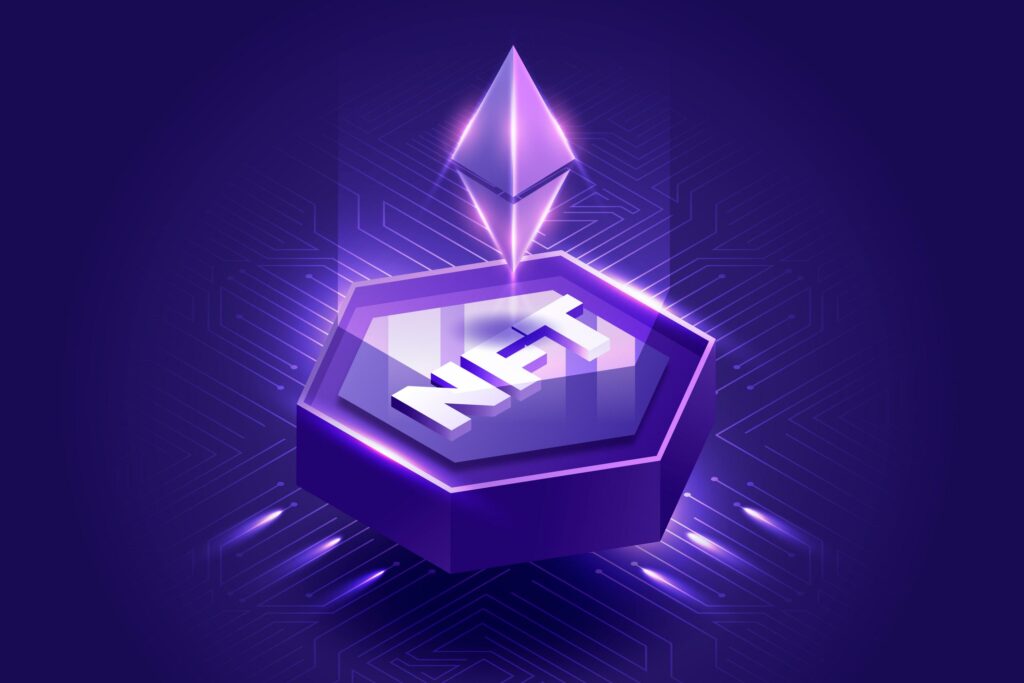
Blockchains are isolated systems—they can’t access external data on their own. This is where oracles like Chainlink, Band Protocol, or custom APIs come in. These decentralized services securely deliver off-chain information to smart contracts.
Common data sources for dynamic NFTs include:
For instance, a sports NFT can change its appearance or rarity level when a player scores a goal or breaks a record. The oracle detects the event and triggers a metadata update in the smart contract.
Once the smart contract receives new data, it replaces or updates the token’s metadata URI—which points to a JSON file stored on IPFS or similar storage. This updated file may include a new image, altered description, or refreshed set of traits.
Updates can be:
While many NFTs use the standard ERC-721, dynamic NFTs often leverage:
In short: Dynamic NFTs work by combining programmable smart contracts, real-world data from oracles, and updatable metadata to create flexible, responsive, and engaging digital assets.
While static NFTs laid the foundation for digital ownership and authentication, dynamic NFTs (dNFTs) unlock a new level of functionality by allowing token properties to change over time. Understanding the difference is critical for businesses and Web3 projects looking to implement NFTs with long-term value and adaptability.
If you’re scaling collections in 2026, review MiCA & DAC8 implications for NFTs to avoid drifting into fungible-asset territory.
Static NFTs are the most common type of non-fungible tokens. Once minted, their metadata—including images, descriptions, traits, and attributes—remains permanently fixed.
Example: A static NFT representing a rare digital artwork will always display the same image and attributes, regardless of future events.
Dynamic NFTs take things further by enabling real-time metadata updates based on user actions or external data inputs (via oracles). They are built with smart contracts that define how and when the token should evolve.
Example: A dynamic NFT representing a fantasy game character can evolve visually and functionally based on the player’s progress or achievements.
| Feature | Static NFTs | Dynamic NFTs |
|---|---|---|
| Metadata | Fixed, immutable | Programmable and updatable |
| Interactivity | None | High – reacts to real-world data |
| Use Cases | Art, collectibles, certifications | Games, real estate, digital identity |
| Smart Contracts | Simple | Advanced, includes update logic |
| Oracle Integration | Not required | Often required for external data |
| Longevity | Passive, unchanging | Evolves with user or market behavior |
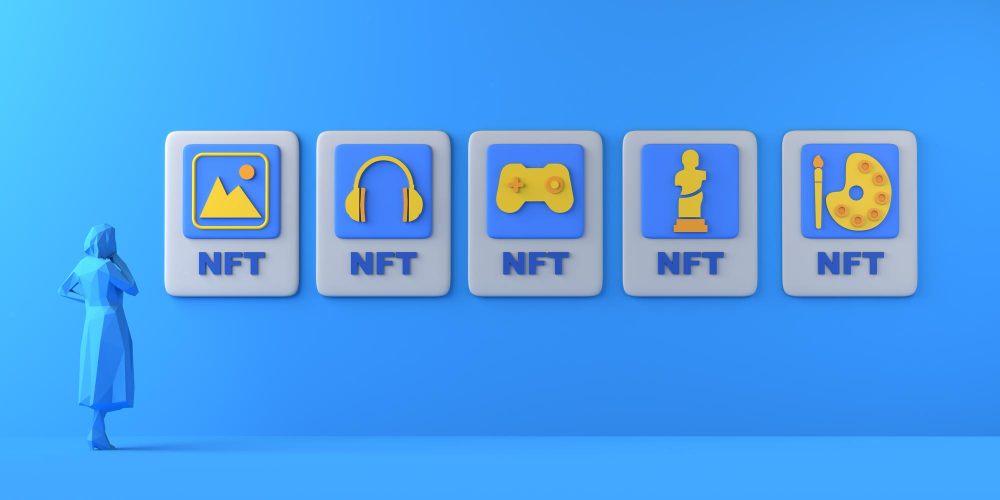
Dynamic NFTs go beyond static collectibles to power real-world applications across multiple industries. Their ability to respond to external data and evolve over time makes them ideal for interactive, personalized, and utility-driven use cases in Web3 and enterprise settings.
Dynamic NFTs are revolutionizing in-game assets and character progression. Instead of minting a new NFT for every level or event, developers can create evolving tokens that reflect player performance, stats, or milestones.
Use Cases:
Example: LaMelo Ball’s dynamic NFTs change visually as the athlete hits statistical achievements.
Artists use dNFTs to create time-sensitive, interactive, or evolving artwork. These NFTs can change appearance based on location, owner interaction, or even the weather.
Use Cases:
Example: Beeple’s “Crossroads” NFT changed depending on the outcome of the U.S. election.
Dynamic NFTs can represent physical assets like real estate or vehicles, automatically updating valuation, ownership records, or maintenance history.
Use Cases:
Example: A dynamic NFT tied to a property reflects repairs, insurance status, or market conditions in real time.
Digital identity systems benefit from dynamic NFTs that reflect user status, reputation, or qualifications.
Use Cases:
Example: A university-issued dynamic NFT that updates to include new degrees or certifications.
Businesses use dNFTs to boost user engagement and reward loyalty with tokens that evolve based on interaction or spending.
Use Cases:
Example: A dynamic NFT evolves into gold status after 10+ purchases, unlocking VIP benefits.
Dynamic NFTs add a live layer to sports memorabilia and fan experiences.
Use Cases:
Example: Sports cards that dynamically show the latest stats, scores, or highlights of the athlete.
| Industry | Example Use Case |
|---|---|
| Gaming | Characters evolve with gameplay |
| Art | Interactive generative art |
| Real Estate | Live-updating property tokens |
| Identity | Auto-updating credentials |
| Loyalty | Tiered rewards and engagement systems |
| Sports | Dynamic player cards & fan collectibles |
Many forward-thinking creators are already launching dynamic NFT collections that update based on time, staking, or user behavior. These collections often live inside custom NFT applications built to offer minting, trading, and interactive user experiences in one seamless environment.
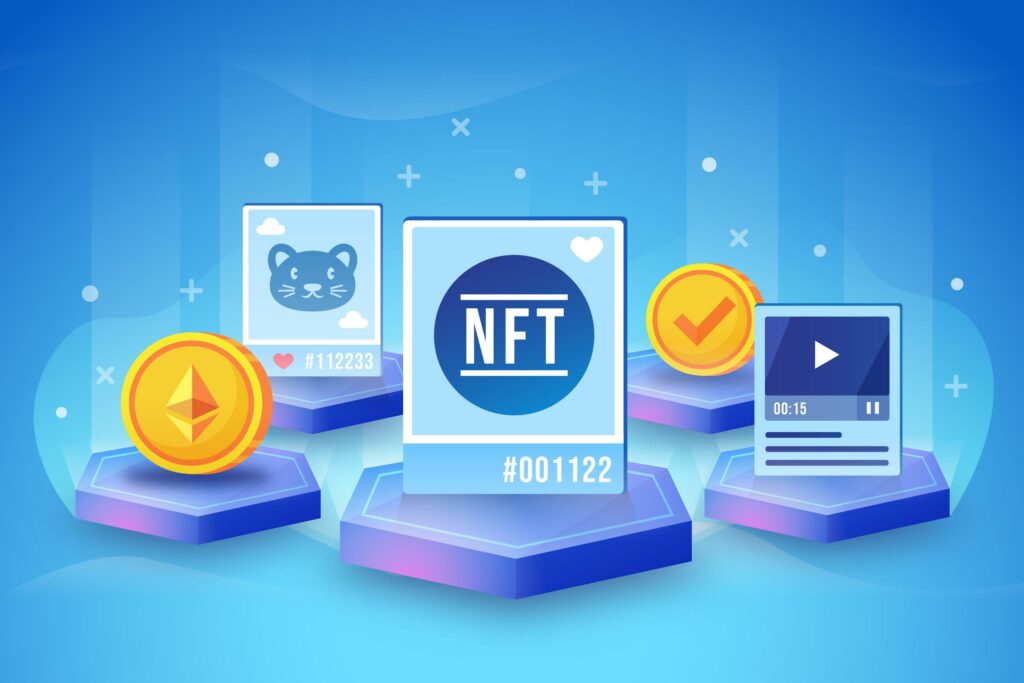
Dynamic NFTs are no longer just a concept — they’re already powering some of the most innovative projects in Web3. From gaming and art to experimental media, these tokens showcase the potential of programmable, evolving digital assets across real industries.
Here are some of the most prominent dynamic NFT examples making an impact today:
NBA star LaMelo Ball launched a series of dynamic NFTs that evolve based on his real-life game performance. When he reached milestones like winning Rookie of the Year, the NFT metadata changed — and the visual design of the NFT was updated accordingly.
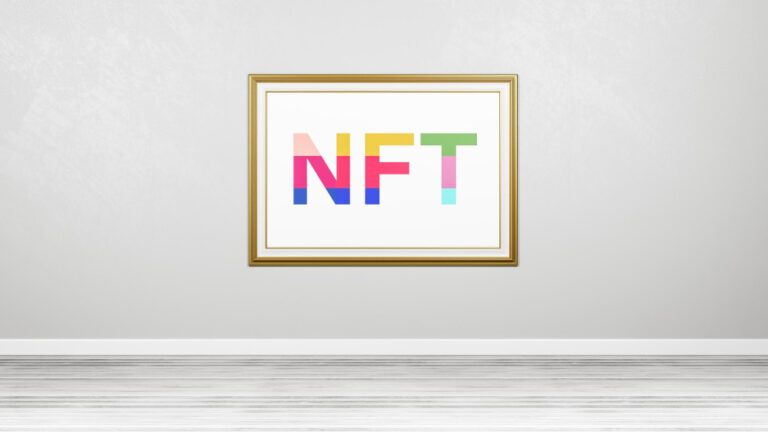
One of the earliest NFT projects, CryptoKitties introduced dynamic behavior through breeding mechanics. Each digital cat had traits that could be passed down or mutate, creating a continuously evolving ecosystem of unique NFTs.
Digital artist Beeple created Crossroads, an NFT designed to change depending on the outcome of the 2020 U.S. presidential election. Once the election concluded, the NFT’s appearance changed permanently, reflecting the real-world result.
Async Art allows artists to create programmable NFTs where different layers can be owned and changed by multiple people. These artworks update in real time based on user interaction or time-based parameters.
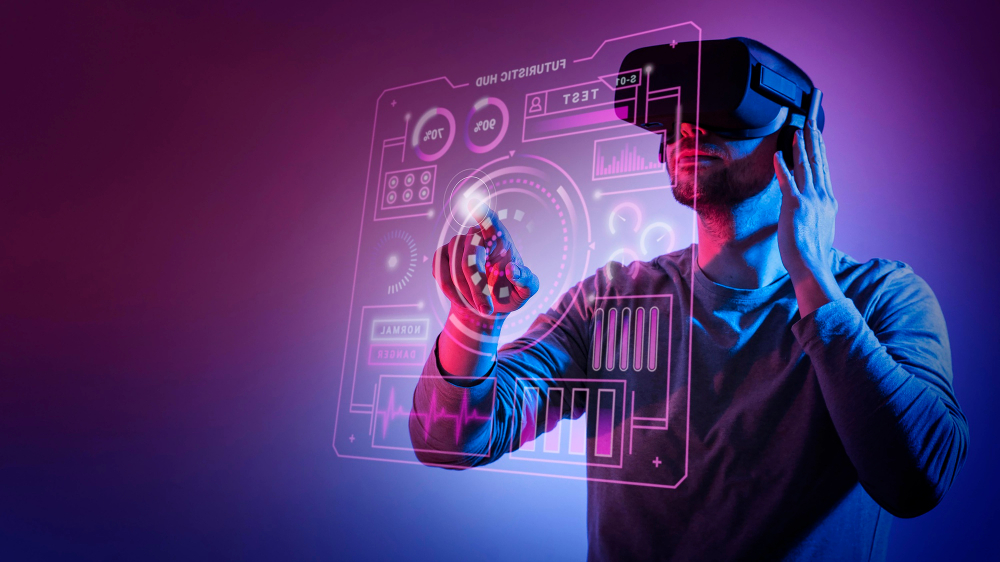
Art Blocks is a generative art platform where many collections use dynamic NFTs to produce visual art that can evolve. For example, some pieces change color palettes or structure over time or in response to blockchain data.
The Moonbirds project introduced dynamic NFTs that reflect staking behavior. Depending on how long a token is held or “nested,” its background and attributes evolve to represent the duration and unlock tiered benefits.
Pak’s The Merge, one of the highest-selling NFT artworks to date (~$91.8M), is a living piece composed of mergeable units. As users purchase and combine tokens, the mass of their NFT grows. The final artwork is shaped by the collective actions of its holders.
Use case: Experimental media + fractional ownership
Functionality: Token “mass” changes through merging
| Project | Industry | Dynamic Feature | Outcome / Benefit |
|---|---|---|---|
| LaMelo Ball | Sports Collectibles | Game stat-driven visual updates | Fan engagement, milestone recognition |
| Beeple’s Crossroads | Digital Art | Reaction to real-world events | Media-art hybrid, high resale value |
| Async Art | Art / Collaboration | Layer-based programmable artworks | Multi-owner creativity |
| CryptoKitties | Gaming | Trait-based evolution through breeding | Early interactive NFT mechanics |
| Moonbirds | Collectibles | Trait evolution based on staking time | Loyalty-based utility & aesthetics |
| Pak’s Merge | Experimental Media | Supply-driven NFT evolution | Collective participation, gamified value |
Dynamic NFTs like these prove that evolving digital assets aren’t just hype — they’re a powerful tool for storytelling, user retention, personalization, and real-world integration.
Want to build a dynamic NFT for your product or platform? Let’s talk about your use case.
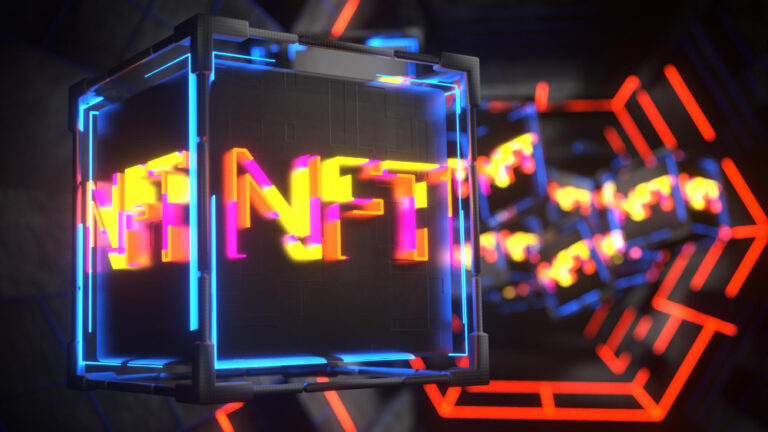
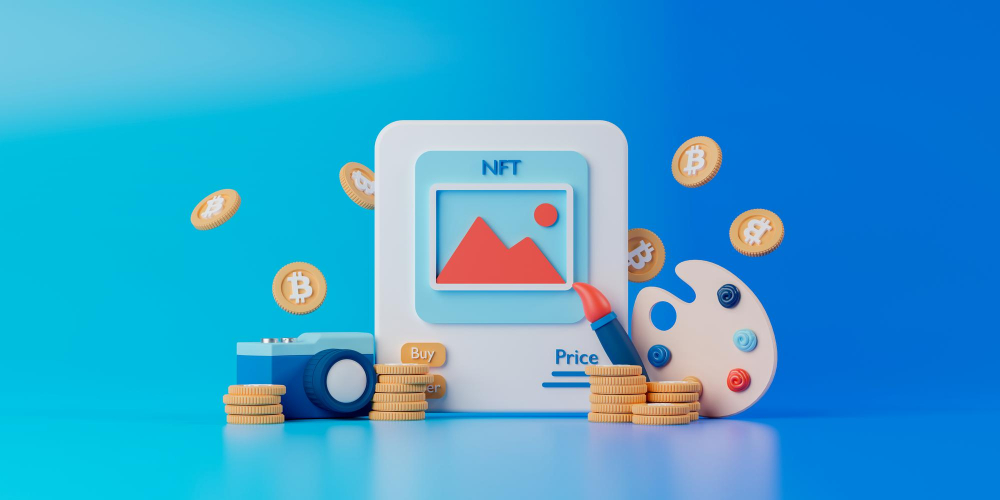
Creating a dynamic NFT (dNFT) involves more than uploading an image and minting a token. It requires smart contract logic, oracle integration, metadata design, and the ability to update the token’s behavior based on specific conditions.
Whether you’re building a game, launching an NFT-driven loyalty program, or tokenizing real estate, here’s how to create a programmable, evolving NFT that reflects real-world data.

Before writing any code, determine:
Example: In a game, your NFT character might evolve based on user achievements or time spent playing.
Dynamic NFTs are usually based on these standards:
For most dNFT applications, ERC-1155 is recommended due to flexibility and reduced gas costs.
Create a smart contract that:
You can also use Chainlink Keepers or Automation to schedule or trigger changes automatically.
Use IPFS or another decentralized storage solution to host:
Ensure your metadata files are structured and follow OpenSea/marketplace standards.
When your smart contract updates the metadata URI, this file can change dynamically to reflect evolution.
For real-world data (e.g., stock prices, weather, sports stats), use a decentralized oracle like Chainlink.
Popular Chainlink tools for dNFTs:
Use frameworks like:
Don’t forget to test:
After deployment:
Consider building a dashboard that visualizes real-time NFT status, especially if changes happen frequently.
Tool Purpose Chainlink Oracle data feeds, automation, randomness IPFS Decentralized metadata + asset hosting Hardhat Development and testing of smart contracts OpenSea Marketplace display and metadata rendering Polygon Fast, low-cost Ethereum-compatible network Alchemy / Infura Blockchain node provider Thirdweb Prebuilt dynamic NFT tools and SDKs Platforms & Tools That Can Help FAQ
Can dynamic NFTs be sold like static NFTs?
Yes, dynamic NFTs are tradable on marketplaces just like static NFTs. The key difference is that their metadata can evolve after the sale, based on the logic defined in the smart contract.
Are dynamic NFTs more expensive to develop?
Generally, yes — dynamic NFTs require more complex smart contract logic and oracle integration, which increases development effort and cost. However, they also offer higher long-term utility.
Do I need an oracle for every dynamic NFT?
Not always. Oracles are needed only if your dynamic NFT relies on external data (e.g., sports stats, weather, token prices). If your NFT changes based on internal logic (like staking duration), oracles may not be required.
Which blockchain is best for dynamic NFTs?
Ethereum is the most popular due to tooling and ecosystem maturity, but other blockchains like Polygon, Avalanche, and BNB Chain also support dynamic NFTs with lower gas fees and strong oracle integrations.
Can I make a dynamic NFT without coding?
You’ll likely need developer support. While no-code platforms for NFT minting exist, dynamic NFTs typically require custom smart contracts and oracle integration, which goes beyond what most no-code tools offer.
Want to learn where dynamic NFTs are headed next? Read our article on Dynamic NFTs in 2025: Trends, Challenges & Predictions.
Conclusion
Dynamic NFTs are redefining how digital assets can evolve, interact, and respond to real-world conditions. Unlike static tokens, they offer long-term utility, enhanced user engagement, and a broader range of business applications—from gaming and art to real estate and identity systems.
Whether you’re a Web3 founder, blockchain consultant, or enterprise executive, dynamic NFTs open new doors for innovation and monetization. As the infrastructure supporting dNFTs matures—with tools like Chainlink, IPFS, and programmable smart contracts—it becomes easier than ever to bring dynamic assets to life.
Ready to build your own dynamic NFT experience?
Contact ND Labs to turn your concept into a scalable, secure solution.